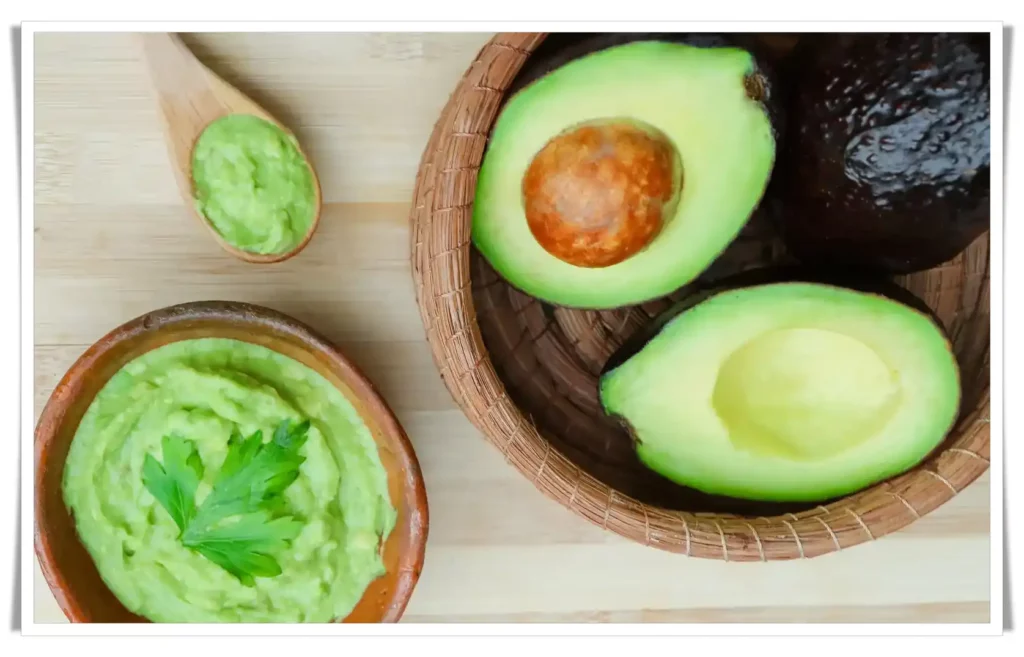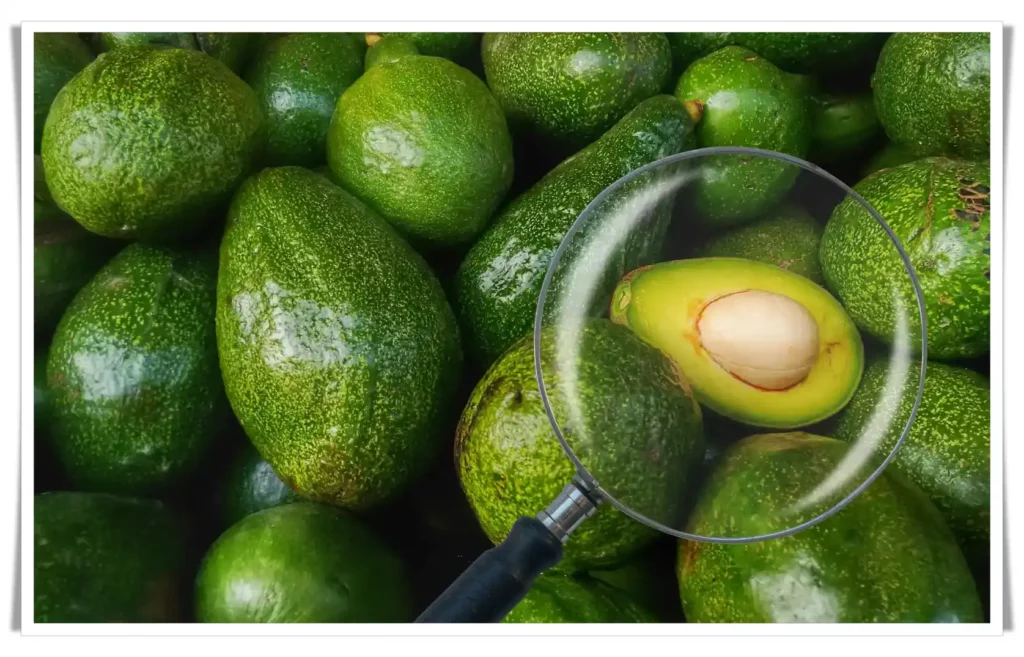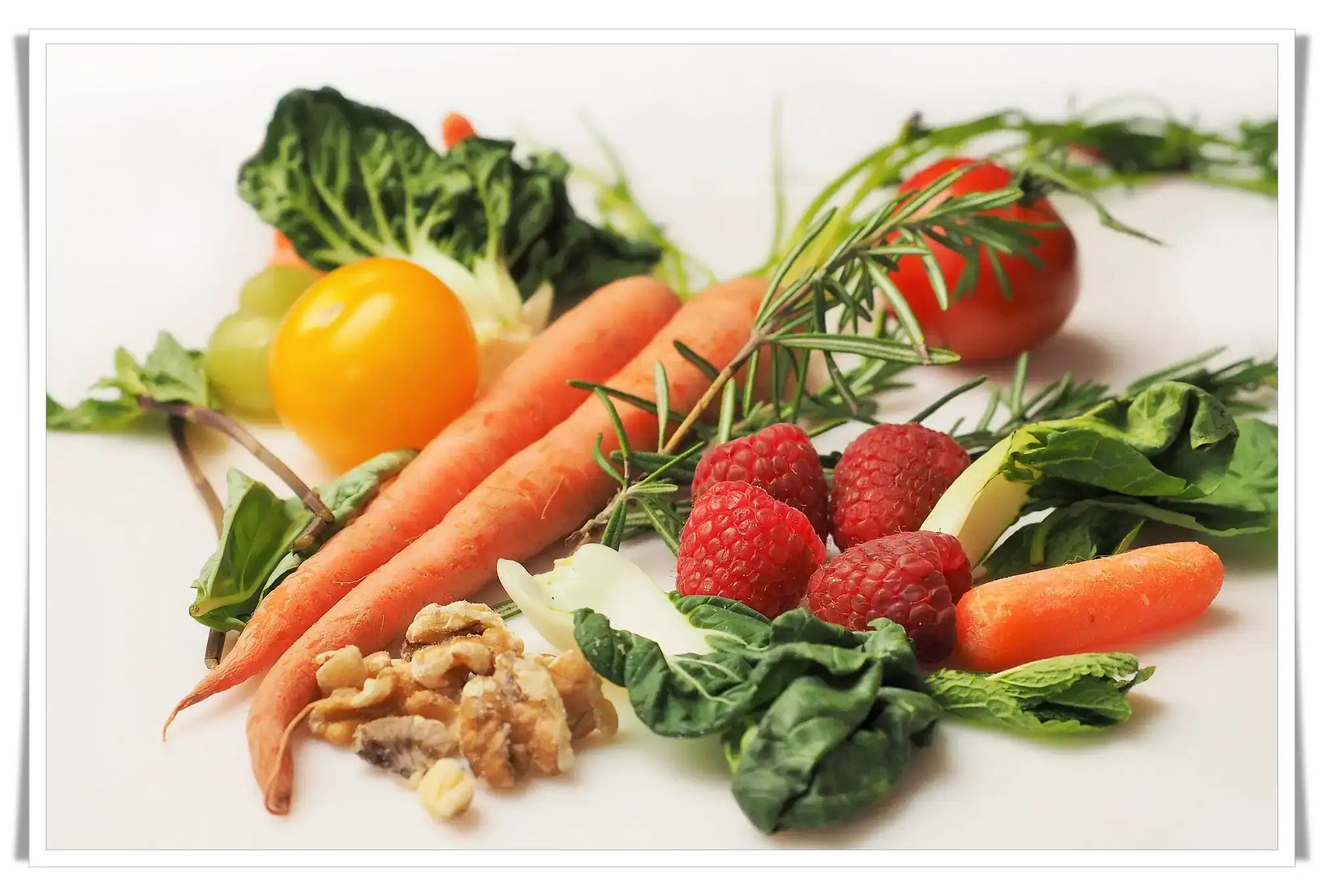Introduction
In this comprehensive guide, we dive deep into the compelling world of avocados, focusing on two key attributes: the surprising protein content and the low-calorie count of small avocados.
In the ever-evolving landscape of nutrition and health, one superfood has managed to hold its ground against fleeting diet trends - the humble avocado. But what exactly is it about this creamy fruit that elevates it to superfood status?
Empower Your Health Journey – Explore My Free Apps for a Vibrant, Healthier Lifestyle Today!
Unpacking the Avocado: An In-Depth Look at its Nutritional Benefits
Avocados are much more than just a tasty topping for your toast or a vital ingredient in your favorite guacamole recipe. This fruit, often mistaken for a vegetable, offers a host of nutrients that make it stand out on the dietary stage, earning it the well-deserved status of a 'superfood.'
Avocados are packed with monounsaturated and polyunsaturated fats. These "good fats" play a crucial role in supporting healthy cholesterol levels, thus reducing the risk of heart disease. Monounsaturated fats, in particular, help lower 'bad' LDL cholesterol and increase 'good' HDL cholesterol levels, keeping your heart functioning optimally. Polyunsaturated fats, which include omega-3 and omega-6 fatty acids, are essential for brain function and cell growth.
But that's not all. Avocados are also a surprisingly good source of protein, especially for a fruit. Including them in your diet can contribute to maintaining and repairing body tissues, among other protein-dependent bodily functions.
In addition, avocados are a great source of dietary fiber, promoting better digestion and contributing to weight control. With nearly 7 grams of fiber in a 100-gram serving, it's an excellent option for those seeking to increase their fiber intake.

As for vitamins and minerals, avocados excel in that department too. They contain substantial amounts of potassium, even more than bananas, which aids in maintaining electrical gradients in your body's cells. It's also a good source of vitamin K, necessary for blood clotting and bone metabolism, and vitamin E, a powerful antioxidant. And let's not forget vitamin C, which boosts your immune system, helps maintain skin health, and enhances iron absorption.
To put all this in perspective, let's take a look at a more detailed breakdown of the nutrients found in avocados.
Nutrient Content Diagram
Protein in Avocado: More than Just a Fruit
When it comes to nutritional powerhouses, avocados often emerge as superstars. Packed full of healthy fats, essential vitamins, and fiber, avocados are a go-to choice for anyone mindful about their diet. But, there is another nutritional aspect of avocados that often gets overlooked - protein. Yes, avocados are a source of protein, an essential macronutrient for your body's growth and maintenance.
So, how much protein does an avocado actually have? While not as protein-rich as foods like meat or legumes, a single avocado provides approximately 3 grams of protein. This might not seem like a lot at first glance, but when you consider that it's coming from a fruit - a category not typically associated with protein - it becomes significantly more impressive.
Protein plays a multitude of roles in our body. It forms the building blocks for our muscles, skin, blood, and bones, assists in repairing body tissues, and contributes to the production of enzymes and hormones. For those on plant-based diets, finding varied sources of protein can be a challenge, and that's where the humble avocado shines.

Though avocados cannot replace high-protein foods entirely, they certainly can supplement your protein intake. When combined with a balanced diet, the protein in avocados can contribute to your daily nutritional needs. And this isn't just any protein – it's a complete protein. That means it contains all nine essential amino acids that our bodies can't produce on their own.
Moreover, the monounsaturated and polyunsaturated fats in avocados enhance protein utilization in the body. Simply put, not only do avocados provide protein, but their healthy fat content also ensures that the protein is effectively absorbed and used by your body.
Protein Utilization Diagram
Small Avocado Calories: A Low-Calorie Superfood
If you're watching your caloric intake, the good news is that avocados, specifically small avocados, can fit comfortably into your diet plan. Despite their reputation for being high in fat, avocados are surprisingly low in calories relative to their nutrient richness. This unique blend of a low-calorie count and a high nutritional value makes avocados an invaluable addition to any balanced diet.
A small avocado (weighing roughly 150 grams) typically has about 240 calories. This calorie count is mostly derived from the healthy monounsaturated and polyunsaturated fats present in the fruit, which not only provides a sustained source of energy but also supports various bodily functions, including heart health and nutrient absorption.

Compared to other fruits, avocados may appear to have higher calorie content, but remember, these are nutrient-dense calories. Every calorie in an avocado is loaded with vitamins, minerals, fiber, and yes, even protein as we discussed earlier. This makes the calories from avocados far more beneficial than those from highly processed foods that are often devoid of such nutrients.
Another thing to note is that despite the caloric content, avocados are very satiating due to their high fiber and healthy fat content. Foods that are high in fiber and fat help you feel full and satisfied, which can prevent overeating and help with weight management.
The Power of Avocado Protein in a Balanced Diet
Avocados have been steadily gaining recognition in the health and fitness world, and not without good reason. One of the less-known but significant attributes that avocados bring to the table is their protein content. Though fruits are generally not associated with high protein levels, avocados break this mold.
The protein in avocados contributes towards meeting your daily protein needs, especially if you follow a vegetarian or vegan diet. The average adult requires approximately 46-56 grams of protein per day, depending on age and sex. While the 3 grams of protein that a whole avocado provides may seem negligible, it contributes to the variety and balance of protein sources in your diet.
Incorporating protein-rich foods like avocados into your meals can help keep you satiated for longer. Proteins take more time to digest than carbohydrates, keeping you full and helping control overeating. This, combined with avocados' high fiber content, makes them an excellent food choice for weight management and control.
But the benefits of avocado protein extend beyond just dietary satisfaction. Protein is fundamental to the body's structure and function. It aids in building and repairing tissues, producing enzymes and hormones, and supporting immune function. Consuming a variety of protein sources, including avocados, ensures a comprehensive intake of essential amino acids, the building blocks of proteins.

Moreover, avocados' low-calorie count - particularly small avocados - make them an excellent addition to a balanced diet. Their dense nutrient profile provides vitamins, minerals, fiber, and healthy fats in a relatively low-calorie package. This means you can enjoy the satiety and nutritional benefits avocados offer without significantly impacting your daily calorie intake.
Table: The Nutritional Breakdown of a Small Avocado (150 grams)
| Nutrient | Quantity |
|---|---|
| Calories | 240 |
| Protein | 3 grams |
| Fiber | 10 grams |
| Healthy Fats | 22 grams |
| Vitamin K | 30% of the Daily Value |
| Vitamin E | 15% of the Daily Value |
| Vitamin C | 20% of the Daily Value |
| Potassium | 20% of the Daily Value |
In essence, the power of protein in avocados, coupled with their low-calorie nature, make them a stellar superfood in the realm of balanced and mindful eating. Join us in the upcoming sections as we delve deeper into how you can incorporate this nutrient-dense fruit into your everyday meals.
A Closer Look: Comprehensive Table on Avocado Nutrition Facts
To truly appreciate the nutritional bounty avocados offer, it's essential to dive into the specifics. Here's a comprehensive table showcasing the nutrient profile of a typical small avocado, weighing approximately 150 grams.
Table: Comprehensive Nutrient Profile of a Small Avocado (150 grams)
| Nutrient | Quantity | % Daily Value |
|---|---|---|
| Calories | 240 | |
| Total Fat | 22g | 33% |
| Saturated Fat | 3.2g | 16% |
| Monounsaturated Fat | 14g | |
| Polyunsaturated Fat | 2.7g | |
| Cholesterol | 0mg | 0% |
| Sodium | 11mg | <1% |
| Total Carbohydrate | 13g | 4% |
| Dietary Fiber | 10g | 40% |
| Sugars | 1g | |
| Protein | 3g | 6% |
| Vitamin K | 39.0µg | 48% |
| Vitamin E | 3.1mg | 20% |
| Vitamin C | 15.0mg | 25% |
| Vitamin B6 | 0.3mg | 23% |
| Folate | 90µg | 22% |
| Pantothenic Acid | 2.1mg | 42% |
| Potassium | 728mg | 20% |
| Magnesium | 39mg | 10% |
As the table illustrates, avocados are dense with numerous essential nutrients. They contain healthy fats, low amounts of saturated fats, zero cholesterol, and are low in sodium - a combination supportive of heart health. Furthermore, avocados boast a high fiber content, beneficial for digestion and satiety. They also provide an array of essential vitamins and minerals that underpin various body functions.
The protein in avocado, though not very high, is a valuable addition, especially for those on plant-based diets. What makes the protein in avocado stand out is that it's a complete protein, containing all nine essential amino acids that our body cannot produce.
The synergy of these nutrients makes avocados a true superfood, able to support various health aspects from heart health, and weight management, to overall wellness. With their unexpectedly low-calorie count, especially small avocados, they make an excellent addition to a balanced and healthy diet. Join us as we explore more on how to utilize the power of avocados in your daily meal planning.
Relevant Scientific Studies and Their Summaries
Numerous scientific studies have investigated avocados' nutritional profile and their potential health benefits. Let's review and summarize a few pertinent studies:
Title: Avocado consumption is associated with better diet quality and nutrient intake, and lower metabolic syndrome risk in US adults: results from the National Health and Nutrition Examination Survey (NHANES) 2001–2008.
Summary: This extensive study observed adults who consumed avocados and compared them with those who didn't. The study found that individuals who ate avocados had healthier diets overall, less metabolic syndrome (a group of risk factors for heart disease), and weighed less than those who didn't consume avocados. It further highlights avocados' beneficial effects on cardiovascular health due to their high monounsaturated fat content.
Avocados and Weight Management
Title: Avocado intake, and longitudinal weight and body mass index changes in an adult cohort.
Summary: This study explored the relationship between avocado consumption and changes in weight. The results showed that adults who regularly consumed avocados tended to gain less weight over time and had a lower Body Mass Index (BMI), indicating that avocados' high fiber and healthy fat content might support weight management.
Title: Avocado (Persea Americana) Seed as a Source of Bioactive Phytochemicals
Summary: This review article highlights avocados as a source of phytochemicals, which are beneficial plant compounds. The study particularly focuses on the protein content in the seed of the avocado, demonstrating its potential for protein enrichment in foods. The protein in avocados is complete, meaning it contains all the essential amino acids that our bodies need.

These studies validate the importance of including avocados in a balanced diet, owing to their low-calorie count, protein content, and other beneficial nutrients. As we continue exploring, we'll discuss practical ways of incorporating this superfood into your everyday meals.
FAQs on Avocado and Its Nutritional Power
As avocados continue to gain popularity, many questions arise about this superfood. Below, we've answered some frequently asked questions about avocado and its nutritional power:
1. How many calories are in a small avocado?
A small avocado, weighing about 150 grams, has approximately 240 calories. The majority of these calories come from healthy monounsaturated and polyunsaturated fats.
2. How much protein is in an avocado?
A small avocado contains about 3 grams of protein. This contributes to your daily protein intake, especially useful for those following vegetarian or vegan diets.
3. Can eating avocados help with weight loss?
Yes, avocados can support weight loss efforts due to their high fiber content and protein, which can help you feel satiated and reduce overall calorie intake. However, they should be consumed as part of a balanced diet as they are also calorie-dense.
4. Are avocados good for heart health?
Avocados are rich in heart-healthy monounsaturated fats and contain no cholesterol. They are also a good source of potassium, a mineral known to help control blood pressure. Therefore, they can contribute positively to heart health when included in a balanced diet.
5. How can I incorporate more avocados into my diet?
Avocados are very versatile. They can be added to salads, used as a healthy spread on toast, blended into smoothies for added creaminess, or even used in baking as a substitute for some fats.
6. Are avocados suitable for everyone?
Most people can enjoy avocados as part of a healthy diet. However, they are high in FODMAPs (types of carbohydrates that can trigger digestive symptoms in some people), so individuals with Irritable Bowel Syndrome (IBS) or similar conditions may need to limit their intake. As with any food, moderation is key.
I hope this FAQ section has answered some of your questions. However, if you have more queries, feel free to leave a comment below, and I'll do my best to provide a response. Don't forget to check out my video, "Discover the Powerful Effects of Avocados on Inflammation! Science-Backed Health Benefits!", for more insightful information on the health benefits of avocados.
This comprehensive dive into the power of protein in avocados and their unexpectedly low-calorie content has provided you with valuable insights. Avocados are not just delicious but also highly nutritious, offering a wide range of benefits for your heart, weight management efforts, and overall health.
Understanding the science of nutrition is a critical step toward making more informed decisions about your diet and lifestyle. We encourage you to continue exploring and enriching your knowledge.
If you found this article informative, I invite you to delve into my other resources. You'll find more in-depth analyses and insights into the world of nutrition and wellness. For instance, consider reading our article "The Stomach-Saving Power of Broccoli: How It Works". Just as with avocados, you might be surprised at the untapped potential of common foods in your diet.
Conclusion
In our exploration of avocados, we've unveiled the immense nutritional wealth that these unassuming fruits harbor. Packed with monounsaturated and polyunsaturated fats, fiber, and essential vitamins and minerals, avocados are a powerhouse of nutrition. Notably, the protein in avocado and its surprisingly low-calorie count for its size makes it a beneficial addition to a balanced diet.
The scientific evidence and studies we've discussed offering a testament to avocado's potential benefits for heart health, weight management, and overall wellness. Yet, avocados represent just one of the numerous nutrient-dense foods nature provides us, reminding us of the infinite possibilities to enhance our diet and health through conscious food choices.
As we close this comprehensive guide to the power of protein in avocado and the superfood's unexpectedly low-calorie nature, we encourage you to continue your journey in understanding nutrition and its impact on your well-being. Remember, the choices you make about your diet are among the most significant health decisions you'll ever make.
Do share this newfound knowledge with those around you and take a step towards embracing a healthier lifestyle. Together, we can strive towards improved health and wellness, one superfood at a time. Keep exploring, stay curious, and remember that every food item on your plate is a new opportunity to fuel your body with the very best nature has to offer.
If you've found this exploration of avocados insightful, we invite you to delve deeper into our other resources. From the power of broccoli to the effects of avocados on inflammation, there's a wealth of information awaiting you. We look forward to being your trusted guide on this exciting journey to health and wellness.
Your feedback is invaluable to us. Please share your thoughts, experiences, or questions in the comment section below. I appreciate your participation in this conversation.





I really like reading through a post that can make men and women think. Also, thank you for allowing me to comment!
Wow, amazing blog format! How long have you been running a blog for?
you make blogging look easy. The total look of your site is excellent, as well as the content material!
You can see similar: sklep internetowy
and here e-commerce
atorvastatin 80mg canada order lipitor 80mg pills lipitor 10mg usa